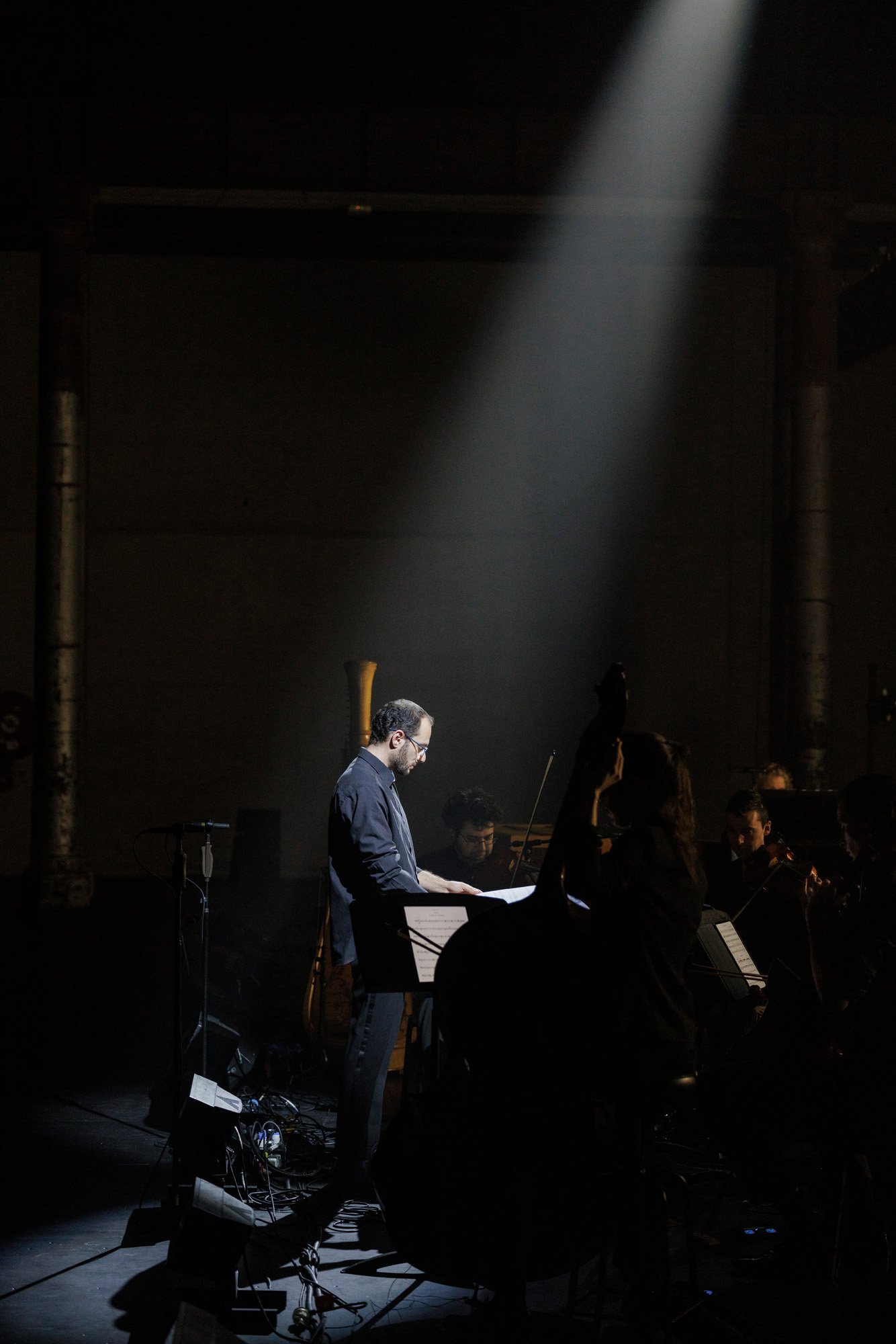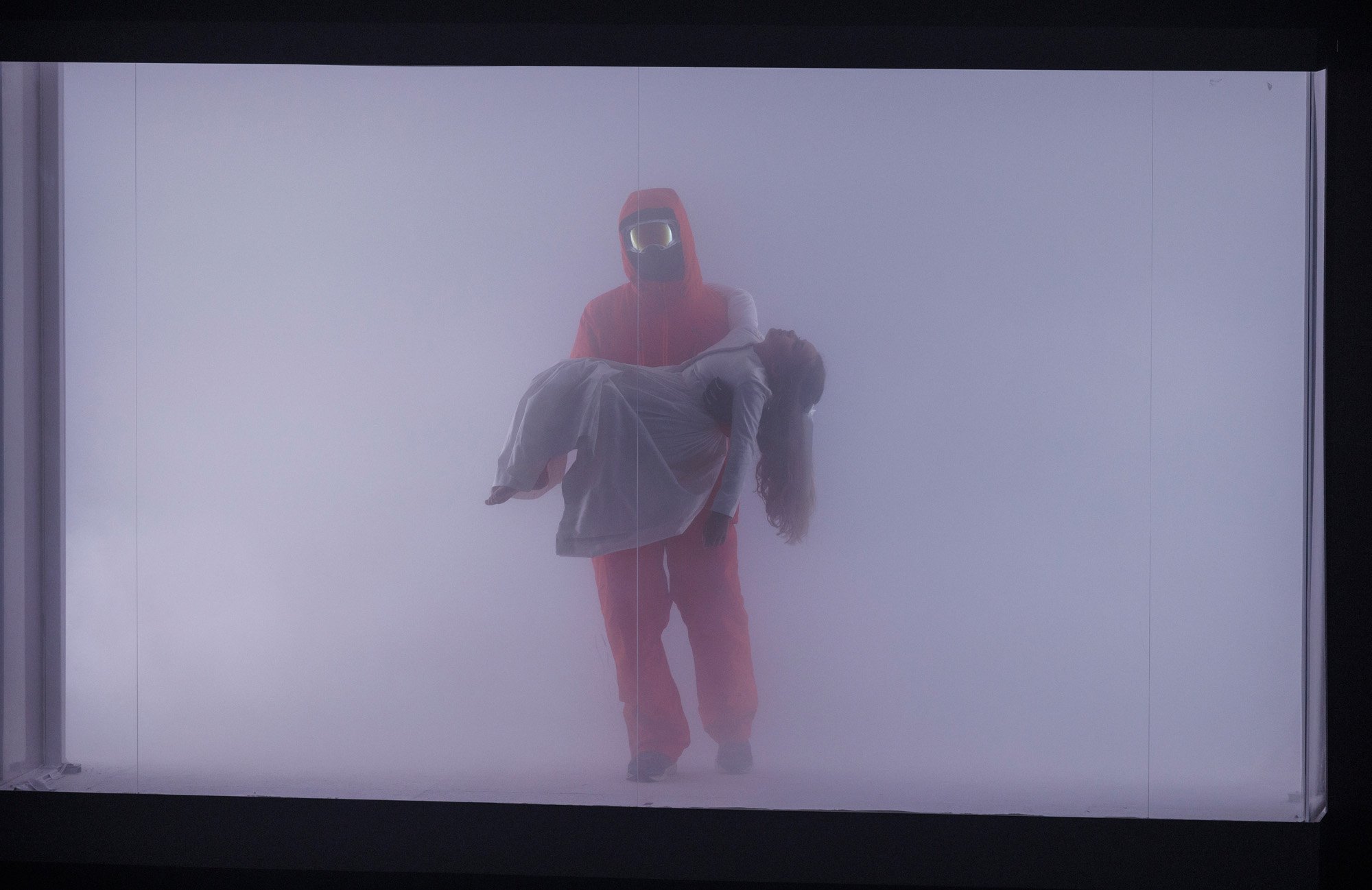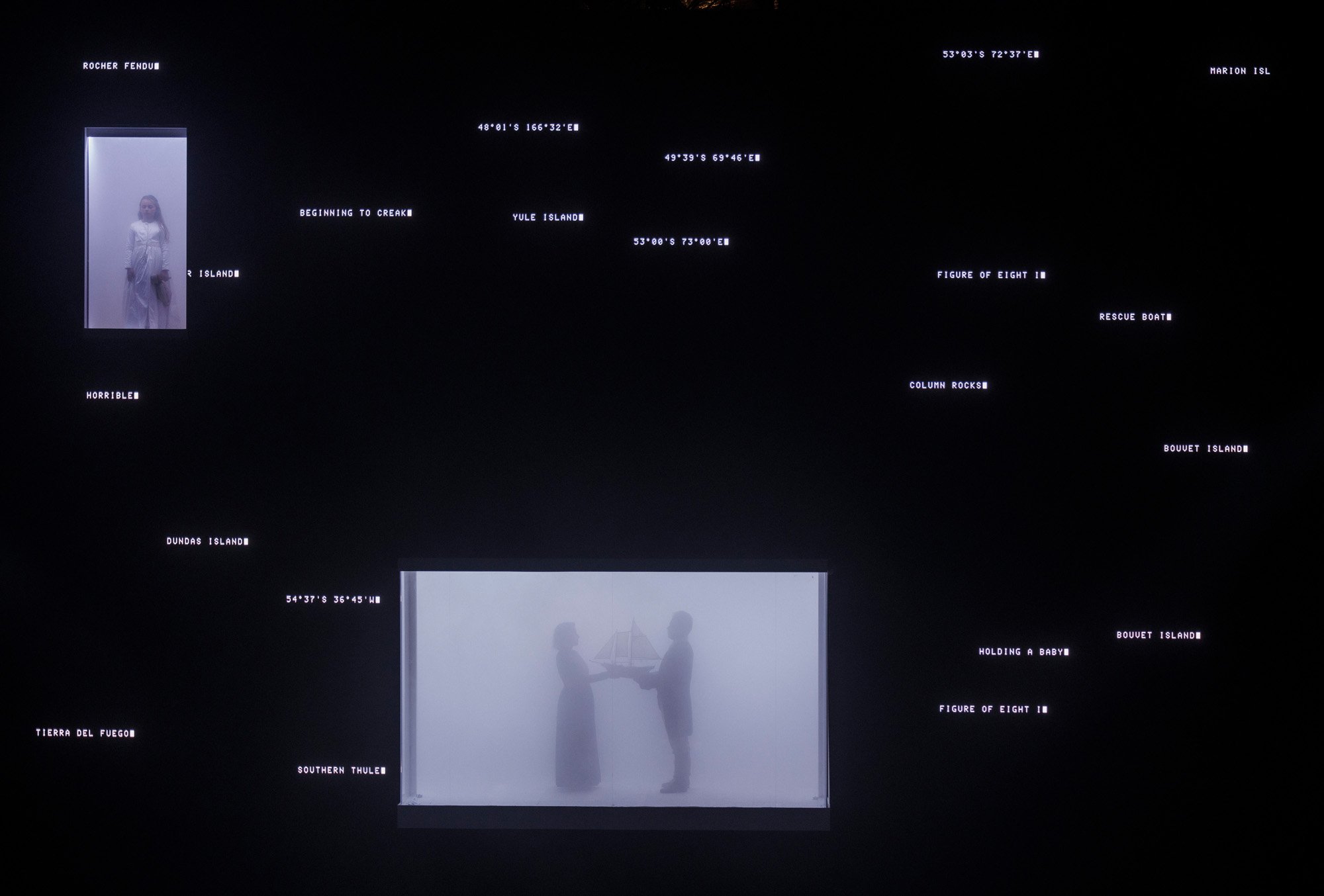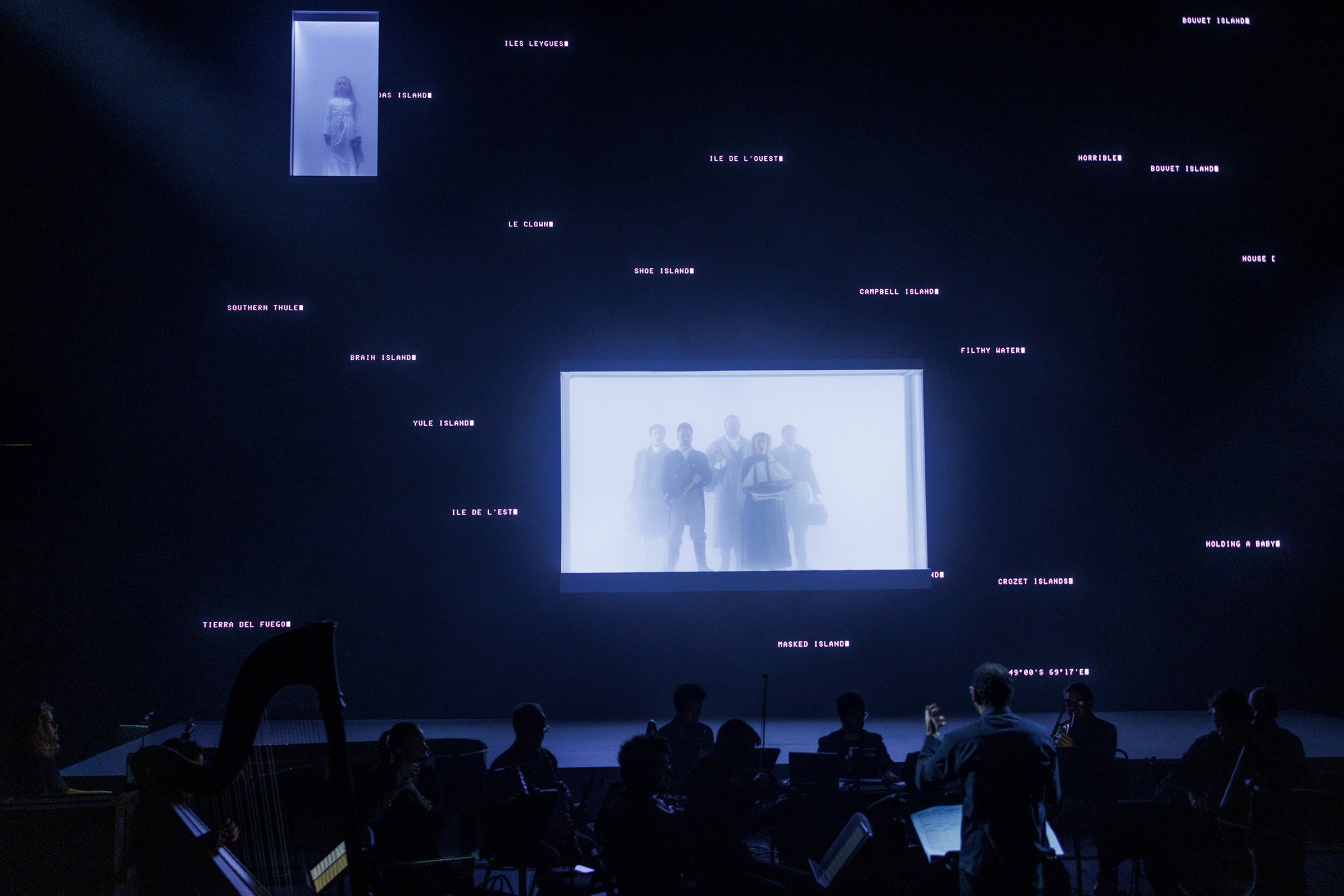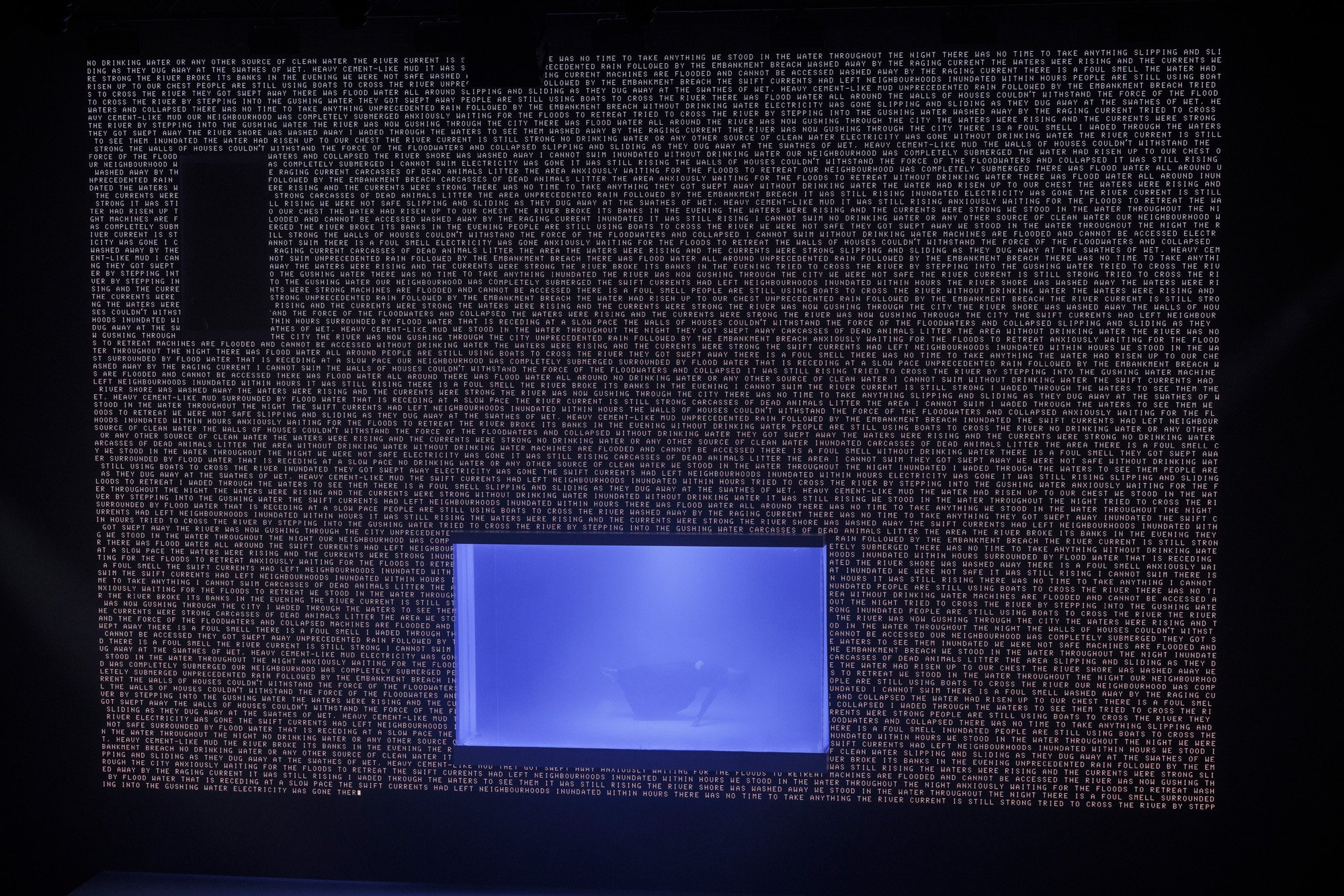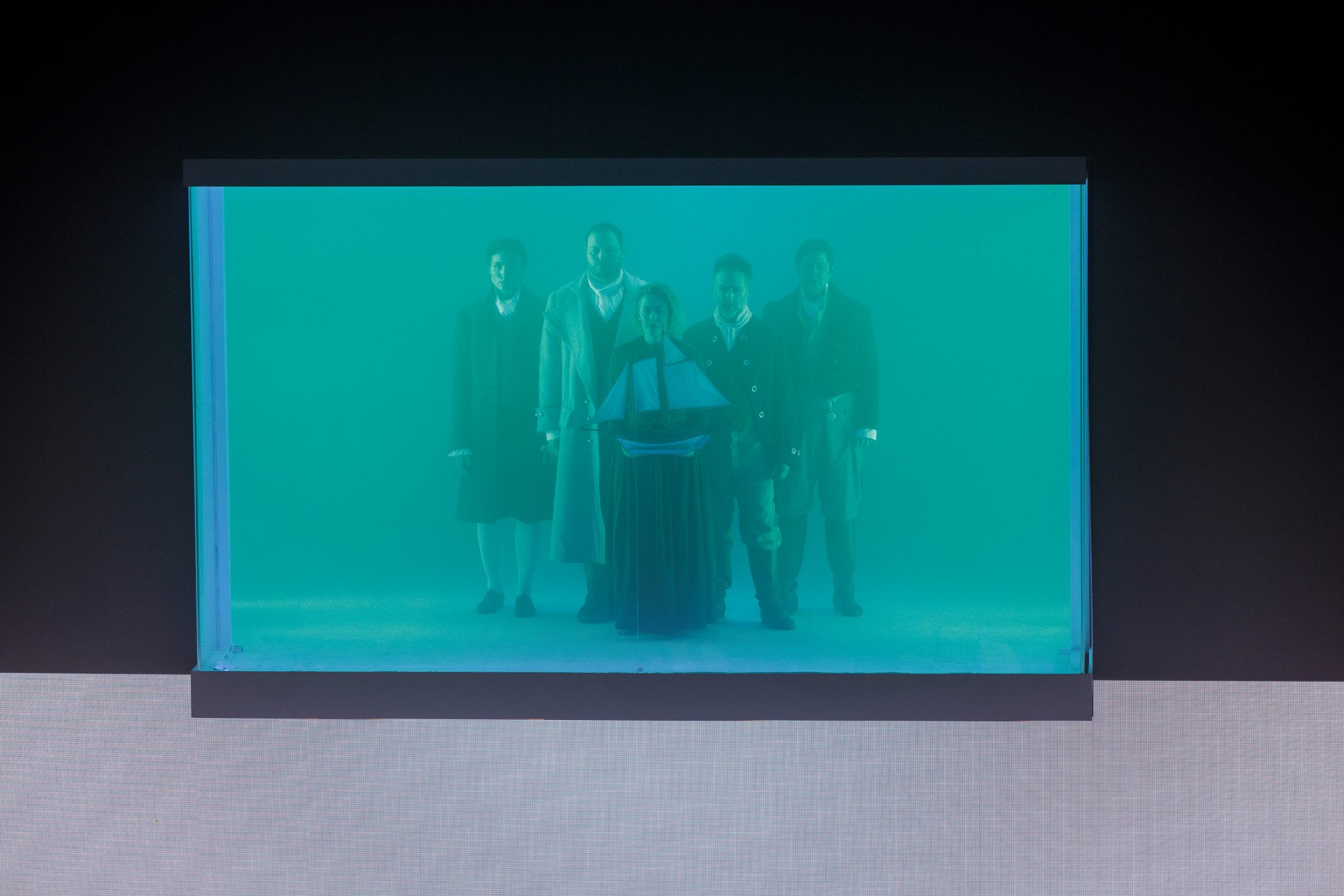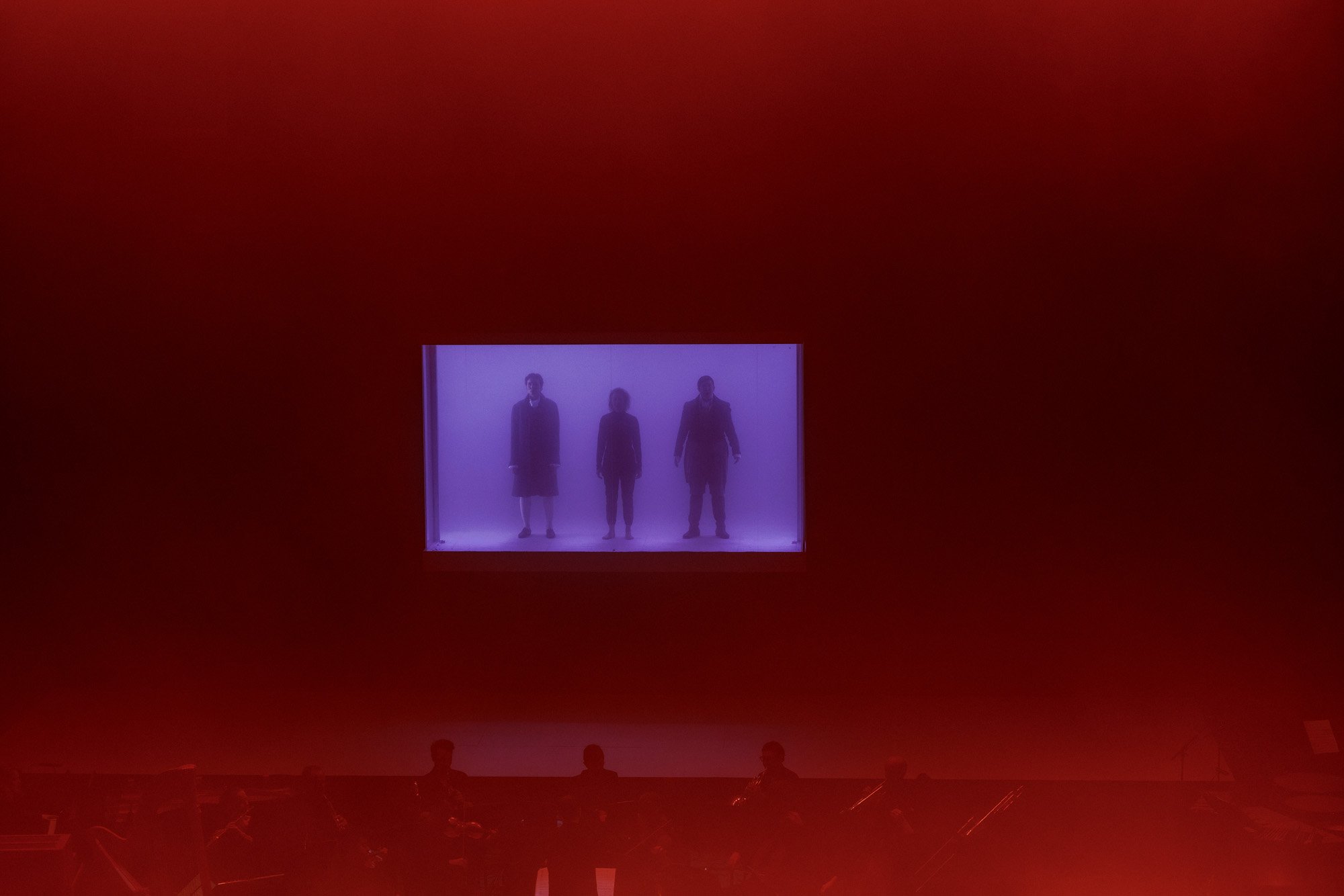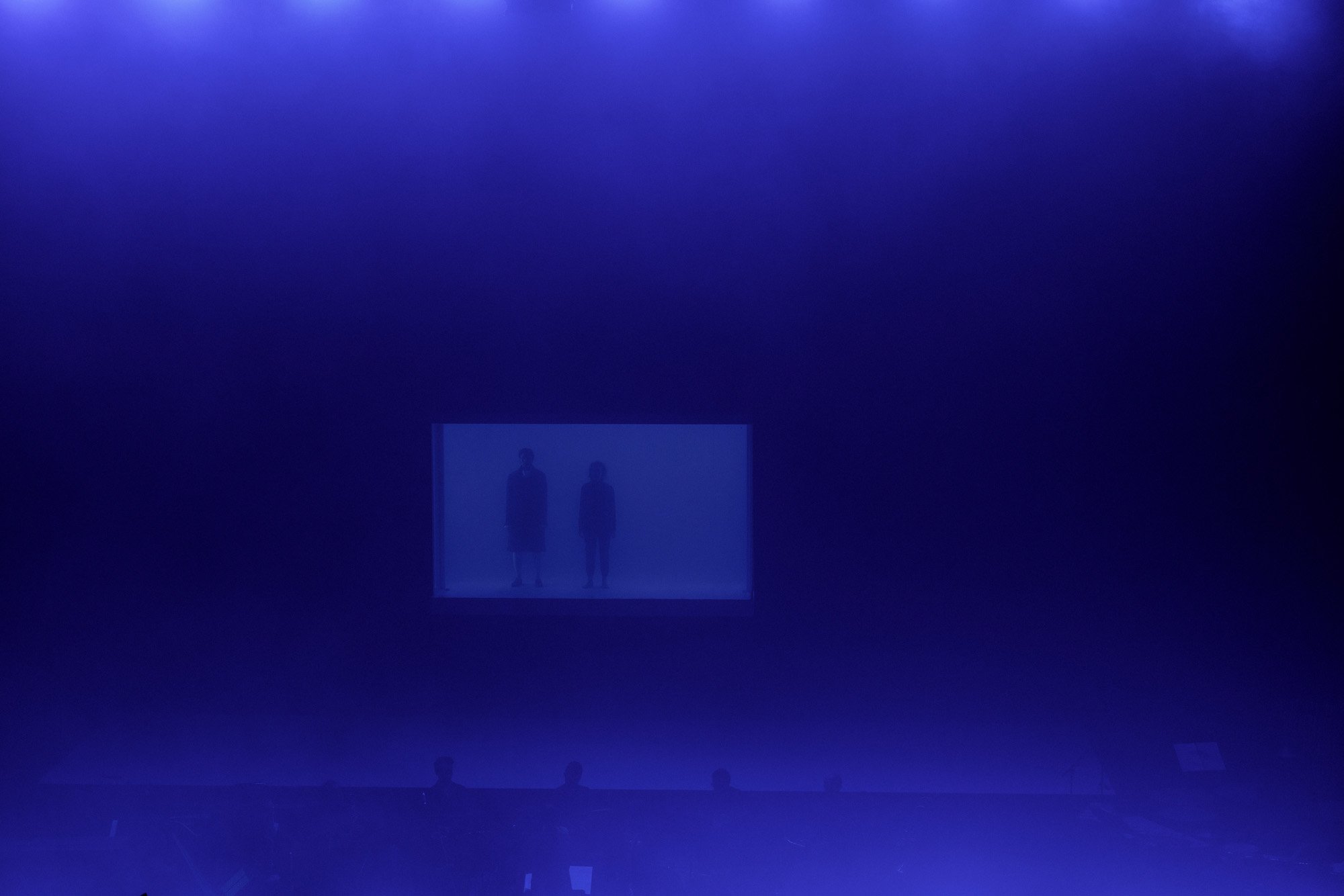ANTARCTICA
“‘an enormous triumph, artistically and logistically…’”
2022 HOLLAND FESTIVAL & 2023 SYDNEY FESTIVAL
PRESENTED BY SYDNEY CHAMBER OPERA WITH ASKO|SCHÖNBERG
MUSIC: MARY FINSTERER
LIBRETTO: TOM WRIGHT
CONDUCTOR: JACK SYMONDS
DIRECTOR: IMARA SAVAGE
ANTARCTICA TRAILER
ABOUT THE WORK
The South Pole is one of the last places on earth rarely visited by humans. It is too cold and inaccessible. It is a fruitful source of inspiration for untold stories and histories. With the help of fictional explorers, the Australian composer Mary Finsterer explores the historical, mythical and scientific conceptions and stories about the southern continent. Finsterer uses an enchanting combination of elements from early and new music to convey the magic of the South Pole.
Three characters from the Renaissance, a cartographer, a natural scientist and a philosopher, have different dreams and expectations concerning the mysterious landscape. Their motivations range from loving curiosity to arrogant possessiveness. But what they find is greater than themselves.
In order to prepare for her opera, Finsterer organised a symposium at the University of Tasmania where she and librettist Tom wright could meet with scientists from the Institute of Marine and Antarctic Studies. In an age of increasing concern for ecological pressures, the displacement of entire populations and a heightened awareness of how vulnerable our oceans are, Antarctica is a fabulous story with a moral to it.
Background
Antarctica is the fifth largest continent on earth, and it is the coldest. Situated at the bottom of the world, Antarctica is a brooding place, not designed for humans. Yet, surrounding the continent itself is the ‘circumpolar’, a place rich in mysterious variations of vegetation and animal life including krill, whales, penguins and seals.
Fable for the 21st century
After her first successful opera Biographica from 2017, composer Mary Finsterer is taking another dive into the genre of opera and bringing Antarctica to the stage. We are living in a time when anthropogenic climate change is destabilising all centres including political, cultural and scientific. We realise how vulnerable is our existence and our planet. The one–and–a–half hour chamber opera revolves around historical, mythical and scientific conceptions and stories surrounding the southern continent.
Visitors will find themselves emersed in a set of allegories around the subject of Antarctica.
‘Everything in our world is pointing toward a socio–political context,’ Finsterer says. ‘Whilst this is important, together with my librettist Tom Wright, we wanted to position Antarctica as a fable for the twenty-first century: a made-up story that has, at its heart, a 'mythic quest' that examines human motives.’
This is done with natural and supernatural forces within an unfolding narrative. The story is told in three acts, The Map, The Journey and Ice. The opera begins with a prologue:
A space. Empty. A fall of white ash which covers all surfaces, enveloping in a fine whiteness.
A party of futuristic explorers trudge through the frozen steppes. They are in the colours of artificial, twenty-first century Antarctic wear - bright red, yellows oranges. they come across a figure, buried in the whiteness, near to death, frozen. It is a girl, dressed in nineteenth century clothes – sepias, browns, deep greens. They warm her, wrap her in insulative blankets. She begins to stammer out her story, a fantastic tale....
‘The fable that Tom and I have created is an interweaving of metaphor, imagined events and mysteries. It is a place where non-human forces are given voice including krill, a ship and ice. This fable offers a place to explore our imagination, a place to be child–like.’
Connection and becoming aware
This opera is not a scientific or political statement. As art, Finsterer hopes to connect people with a place within the imagination as much as the physical manifestation of this remote region in the world. Raising awareness is an important element: the three characters in the opera go on a voyage and discover what really matters in life along the way. Their journey is not just physical but particularly emotional and spiritual as well.
Scientists and artists
Finsterer has worked closely with librettist Tom Wright in developing the opera. She contacted scientists from the University of Tasmania and researched their findings with the goal of incorporating those in her new opera. ‘I’m excited about this collaboration,’ the composer says, ‘because scientists follow a process that combines analytic and creative thinking. This process is not too far removed from composing.’
The process of creating the opera Antarctica involved exploring music, dramaturgy, visual arts, digital media, the humanities, cultural studies and a great number of fields of science. This research, including graphic representation, raw data, audio and video recordings and other relevant documentation, not only provided a rich source of material for the creation of the libretto and music, it has also informed the artistic process for director, Imara Savage.
Early and contemporary music
In Antarctica, Mary Finsterer takes her musical cues from early and contemporary music. ‘The music I have composed is infused with historical, metaphorical and poetic references. It brings together medieval and renaissance musical practices with innovations from the twentieth and twenty-first century including serial techniques, orchestration and electronics.
CREDITS
Music & Concept: Mary Finsterer
Libretto & Concept: Tom Wright
Conductor: Jack Symonds
Director: Imara Savage
PRODUCTION
Set & Costume Design: Elizabeth Gadsby
Lighting Design: Alexander Berlage
Sound Designer: Arne Bock (Holland Festival) & Bob Scott (Sydney Festival)
Audio & Video recording: Asko|Schönberg (Holland Festival) & Hospital Hill (Sydney Festival)
CAST
The Daughter: Jane Sheldon
The Theologian: Jessica O'Donoghue
The Natural Philosopher: Anna Fraser
The Cartographer: Michael Petruccelli
The Captain: Simon Lobelson
Asko|Schönberg: Fedor Teunisse, Artistic Director
The Daughter (actor): Hanne Fransen (Holland Festival) Haden Holmes (Sydney Festival)
Spoken Voices – The Daughter: Eve Kreutz / Interviewer: Tom Wright
REVIEWS
LIMELIGHT MAGAZINE
★★★★½ (4.5 stars)
Jason Catlett, 10 June 2022
"an enormous triumph, artistically and logistically… Finsterer’s complex yet easily apprehended orchestration swells from the intimate delicacy of a child’s music box to a vast enveloping panorama that makes most Hollywood science fiction soundtracks sound less than epic by comparison.”
BACHTRACK
★★★★½ (4.5 stars)
Jeremy Eccles, 6 January 2023
“the motives behind the quest by three Enlightenment figures [in the storyline] remain mysterious as we luxuriate in Finsterer’s gorgeous music.”
LIMELIGHT MAGAZINE
★★★★½ (4.5 stars)
Deborah Jones, 6 January 2023
" Mary Finsterer's heart-stoppingly beautiful new opera is endlessly absorbing, sonically and visually.”
"Finsterer’s score has high drama, romantic sweep, dark shadows, passages of moving reflection and is rich and abundant in colour. Finsterer’s affinity with the music of the Renaissance is heard in delicate, close harmonies and there are touches of ecclesiastical sonorities. A lovely lament near the end is slightly distorted, all the more touching for weaving in and out of shape. There are times when the music rolls like the sea and evokes the cold; at others the focus is on the qualities of the voice, be it contemplative, searching or angry, as in a stirring aria for baritone Simon Lobelson as The Captain. Added to the mix at times is an electronic cloud of sound that includes, Finsterer says, sonar used by Antarctic scientists to map the seabed.
Whatever the source, the music is unfailingly engaging.”
TIME OUT
★★★★½ (4.5 stars)
Charlotte Smee, 6 January 2023
" Finsterer’s music is at once cinematic, deliciously dissonant and evocative of the epic scale of endlessness in Antarctica, employing the voices of the singers and the expert instrumentalists to awe-inspiring effect. The opera uses a range of musical techniques, developed from Finsterer’s varied musical practice and in tandem with scientists from the University of Tasmania, including matching musical contours to those of a graph predicting decompositions of tidal currents somewhere on the Antarctic coast.”
"Antarctica begs you to lean into its precisely orchestrated, excitingly layered complexity. Go with open ears...and leave with an astonishing new vision of what contemporary Australian opera can achieve.”
THE AU REVIEW
★★★★ (4 stars)
Penny Spirou, 6 January 2023
" Antarctica is a true blend of art and science into the unknown... an incredible feat, to have so much talent in the one room, working together. In addition, the breadth of knowledge that pours onto the stage. And the technicality of the staging itself. It is a lot to take in all at once and will leave you thinking (and thinking, and thinking), just like the creators intended.”
SYDNEY MORNING HERALD
★★★★½ (4.5 stars)
Harriet Cunningham, 6 January 2023
" Ambitious and exquisite: Antarctica is contemporary opera at its best.”
"Time operates on many different scales in Antarctica. There is history – of thought, of exploration, of music...Finsterer’s score, shot through with musical old friends that dissolve like memory."
SYDNEY MORNING HERALD
★★★★½ (4.5 stars)
Harriet Cunningham, 6 January 2023
"Finsterer conjures a wide palette of sounds for the Netherlands Asko|Schonberg ensemble, from the grey moan of the viola d’amore to the blinding white of high piccolo. She also uses voices for their intrinsic character, their timbre, as much as their ability to convey words and emotions."
STAGE NOISE
★★★★½ (4.5 stars)
Diana Simmonds, 7 January 2023
"A festival needs at least one show that captivates and stretches the imagination and stirs the blood and brain; that confounds and thrills its audience and takes us to places we’ve not been before. They are rare and sought after. This Sydney Festival has such a work in composer Mary Finsterer and librettist Tom Wright’s chamber opera Antarctica.”
“Antarctica is overwhelmingly about the music, however, with its washes of colour and temperature emanating from celesta and harp. The movement of ice rasps and creaks from gongs and viola d’amore, cello, and bass. The organic integration of electronics and digital imagery creates repeated and constant feasts for eyes and ears for the hour and 40 minutes of the piece.”
“Antarctica is an achievement of extraordinary beauty. An epic in physical miniature but not in ambition. Mary Finsterer should be encouraged to do next whatever she fancies. Meanwhile, we’ll wait and anticipate. And hurry to Carriageworks for the final performances of this production. Recommended without reservation.”
AUSTRALIAN BOOK REVIEW
★★★★½ (4.5 stars)
Michael Halliwell, 10 January 2023
" Finsterer, one of Australia’s most versatile and successful composers, works in a wide range of genres, including film…unlike many contemporary opera composers, [she] writes well for the voice, carving out graceful vocal lines while not eschewing a wide range of extreme vocal effects when appropriate. Part of this skill lies in her drawing on earlier opera, even challenging the singers to decorate their vocal lines.”
At times, the ravishing music recalls Renaissance madrigals as the five voices weave around each other in a variety of combinations. Finsterer seeks the warmth, colour, wide range of textures and beauty of the voice, rather than exploiting it as a vehicle to project the text.”
DE NIEUWE MUZE
Wenneke Savenije, 6 June 2022
" Mythical opera Antarctica connects art and science”
"Finsterer has followed crystal clear paths in the elaboration of her icy material: 'The boundless nature of this subject demands that an inexhaustible quality is reflected in a multitude of languages.' With that in mind, she wrote the music in a playful and poetic way and, with librettist Tom Wright, the partly Latin words for the opera. This resulted in an ingenious interweaving of metaphor, imagined events and mysteries."
"Antarctica's persuasiveness was largely due to Finsterer's beautiful music. Add to this the animal sounds from the southern polar region, tastefully incorporated into her compositional structures, the voices of ghosts, the squeaking and creaking of ships sinking in the raging waves, the sounds of ripping ice and the howling wind… What you heard and saw resulted in a hallucinatory experience. Antarctica is food for thought.”
HET PAROOL
Erik Voerman, 8 June 2022
" Finsterer expresses a personal contemporary variant of early baroque madrigal art, which made the contributions of Anna Fraser as the natural philosopher in particular a great pleasure.”
